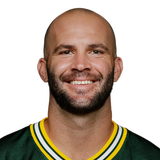
Broncos were forced into going back to Peyton Manning
Peyton Manning didn't earn the starting job for the Denver Broncos' second-round playoff game.
Brock Osweiler lost it.
No disrespect to Manning, who is still better than the majority of NFL quarterbacks even in the twilight of his Pro Football Hall of Fame career at age 39. However, the stage was set for Osweiler to lead the Broncos into the postseason before he forced head coach Gary Kubiak to draw the curtain.
Kubiak announced Thursday that Manning would be his starting quarterback Jan. 17 when the Broncos take the field again following this weekend's bye.
"I just do what is best for the team," Kubiak told Broncos media. "I feel good about this."
Kubiak would probably feel a whole lot better if Osweiler had played well enough to keep the gig in Manning's absence.
The reality is that Manning was playing at a level that ultimately should have gotten him benched had a lingering foot injury not done the trick after Denver's ninth game. At that point, the Broncos were winning for the same reason they are now -- a defense good enough to overcome Denver's deficiencies at quarterback, along the offensive line and in the running game.
Manning had thrown a league-high 17 interceptions to go along with just nine touchdowns. The turnover total was so high that Manning continued to lead the league until Jacksonville's Blake Bortles finally overtook him in Week 17.
As a second-year quarterback, Bortles has the built-in excuse of inexperience. The same doesn't fly for the NFL's all-time passing leader.
As Manning visited with specialists to treat his plantar fasciitis, Osweiler had the chance to get a leg up toward keeping the job. Osweiler initially took advantage with a gritty win in his first NFL start at Chicago. That was followed by Osweiler guiding Denver to a come-from-behind home win over New England to hand the Patriots their first loss of the season.
But the limitations that come with having served as Manning's understudy while receiving scant actual playing time -- Osweiler had attempted just 30 passes in mop-up duty during his first three seasons -- eventually became exposed. The Broncos lost to Oakland and Pittsburgh in Weeks 14 and 15 when the offense came unhinged in the second half. And even though Osweiler led Denver's comeback in a pivotal Week 16 overtime win over Cincinnati, Kubiak clearly had him on a short leash for the season-finale against San Diego with Manning able to play once again.
Osweiler started last Sunday's game with Manning serving as a backup for the first time in his football career. The arrangement lasted all of 2 1/2 quarters. Osweiler was yanked after the Broncos committed their fifth turnover to fall in jeopardy of suffering a loss that would have cost Denver the AFC West title and the conference's No. 1 playoff seed.
Manning delivered when called upon. Even though his passing numbers weren't anything spectacular (5 of 9 for 69 yards), Manning provided a spark that Denver's offense was lacking while guiding a 27-20 comeback win.
Kubiak didn't announce his starting quarterback for the postseason immediately afterward, but there was no need. It was obvious Manning would get the nod again.
Thanks to the bye, the Broncos now have additional time for Manning to mend while getting back into a rhythm at practice. The same extended healing period goes for Osweiler, who already was suffering from an injured left (non-throwing) shoulder before being held out of Thursday's session with a sprained knee
Kubiak, whose West Coast-style offensive system has proven a poor fit for Manning, also gets an extra week to craft a game plan that maximizes the latter's strengths and minimizes his weaknesses.
But no matter how long the Broncos have off, it won't make Manning's arm any stronger. That's what gives NFL Network analyst Heath Evans trepidation about Denver's Super Bowl hopes.
Appearing on SiriusXM NFL Radio with co-host Maurice Jones-Drew and me Thursday, Evans said Manning will still struggle to make consistently good throws to the outside because his grip is affected by neck problems. Evans pointed to Manning's struggles against Seattle in Super Bowl 48 and New England during the 2014 season.
"The good coaches know to take away the middle of the field," Evans said.
The good ones also know how to manage their quarterback position. In this case, Osweiler left Kubiak no other option but to start Manning.
